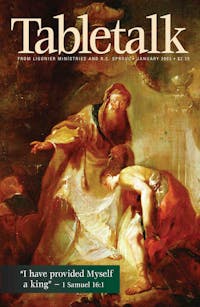
Request your free, three-month trial to Tabletalk magazine. You’ll receive the print issue monthly and gain immediate digital access to decades of archives. This trial is risk-free. No credit card required.
Try Tabletalk NowAlready receive Tabletalk magazine every month?
Verify your email address to gain unlimited access.
Does the word commentary cause you to break out in hives? It shouldn’t. And it won’t, if the commentary under discussion is Matthew Henry’s Commentary on the Whole Bible. This tried-and-tested exposition of the Bible represents all that is best in Scripture commentaries—faithfulness to the Biblical text, a pastoral concern for application, and scholarly depth where necessary. In short, it will do more than help you fill your head with Biblical and theological facts. It will help you grow as a Christian.
Matthew Henry (1662–1714) was a Presbyterian pastor in England. The teaching and preaching of God’s Word were central to his ministry and life; in fact, portions of the commentary are probably adapted from material he prepared to teach his own family during morning and evening prayer times. When he began to organize his notes for publication, he wrote that it was his goal to “promote knowledge of the Scriptures, in order to the reforming of men’s hearts and lives.” Christian saints from Henry’s time to our own have testified that he succeeded. George White-field, who was arguably the leading evangelist of the Great Awakening of the eighteenth century, is said to have read through the entire commentary four times on his knees, and the great Baptist preacher Charles Spurgeon once said, “Every minister ought to read Matthew Henry entirely and carefully through once at least.”
Henry’s commentary usually is published in six volumes. It is still available as such, and Henry’s comments on 1 and 2 Samuel in Volume II will guide Tabletalk’s daily studies this year. Various abridged versions are also available, but the unabridged set includes the King James Version of the Biblical text on which Henry actually based his comments.
As long as Henry’s work remains in print, there’s no reason to suffer from an allergic reaction to commentaries.
